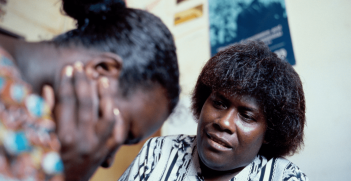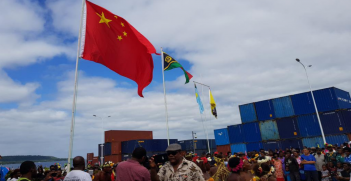In the Fight: The Challenge of Tribal Conflict in Papua New Guinea
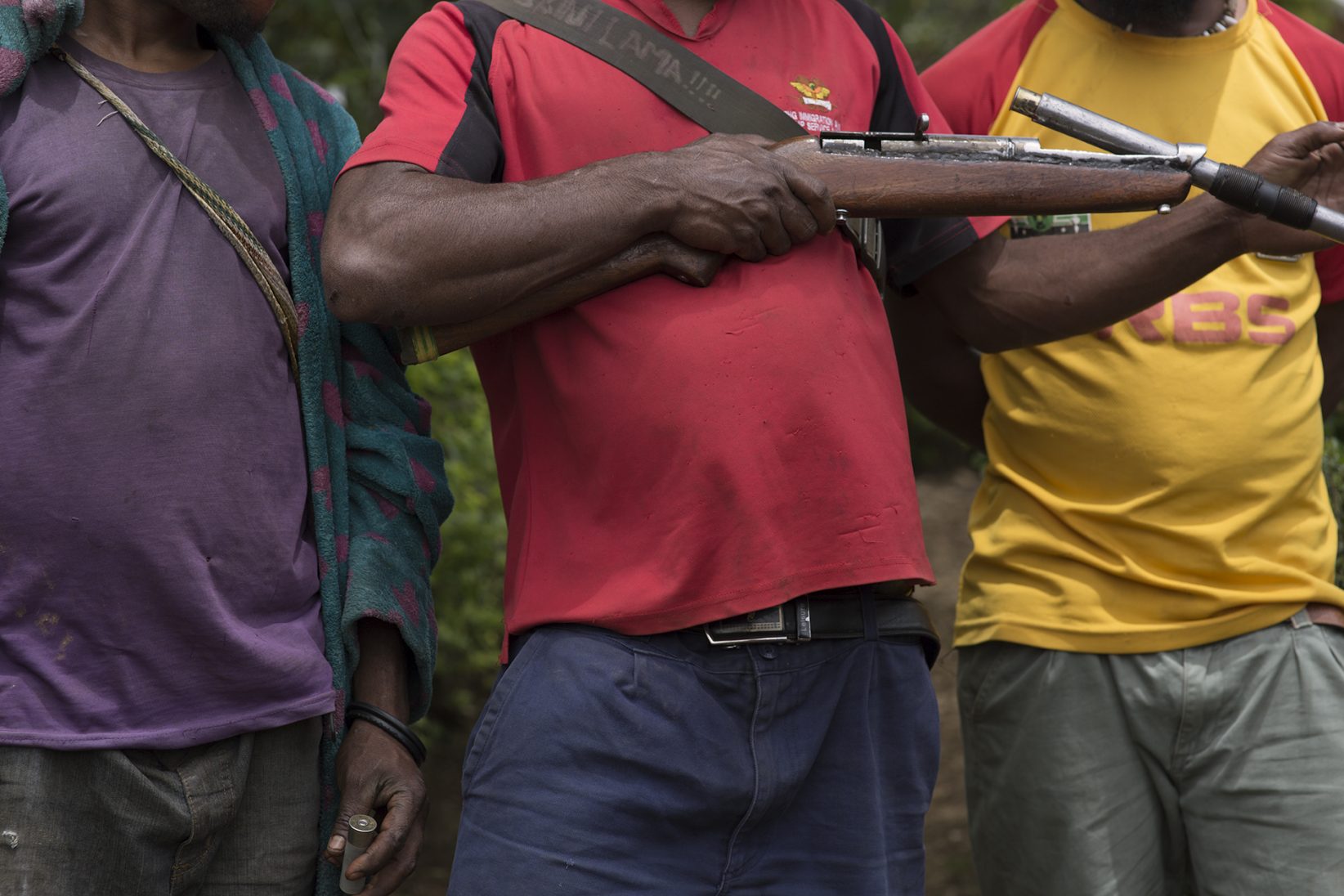
Modern warfare has changed the landscape of conflict in Papua New Guinea, also posing new challenges for the International Committee of the Red Cross (ICRC).
It is often said that tribal fighting in the Papua New Guinea Highlands is part and parcel of the socio-cultural fabric of the region. With a history stretching back hundreds of years (if not more), it can be seen simply as an indivisible feature of the Highland way of life. While to some extent true, tribal fighting in the last 30 years has become more akin to conventional warfare on the battlefields of the Middle East or sub-Saharan Africa than the pitched battles using the bows and arrows that characterised pre-colonial confrontations in the Highlands. In the last thirty years, modern weapons, along with other accoutrements of modern technology, have made their way into Papua New Guinea (PNG). They have disrupted the traditional rules of tribal fighting that had historically limited the effects and consequences of the fighting and restrained fighters from going too far.
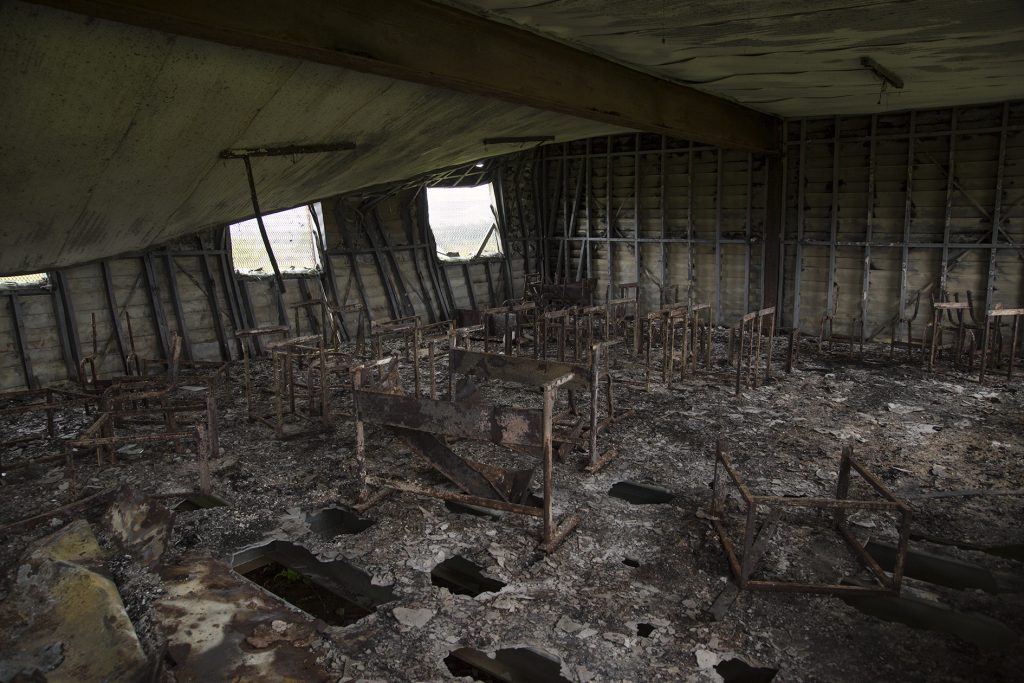
HELA PROVINCE, PNG: A destroyed college in Hela Province. Photo by Caitlin Welch, ICRC
While in the past, a decision to go to war with an opposing clan or tribe would have been taken collectively, now young and disillusioned men with access to modern weapons can unleash devastation on their enemies and their own communities almost single-handedly. The presence of these modern weapons and their destructive firepower has also meant that the number of casualties is much higher, making it harder for opposing sides to reconcile (and the traditional exchange of compensation prohibitive) and leading to completely unprecedented tribal fighting dynamics. Instead of pre-arranged battles between warriors in designated areas as in the past, villages are now attacked under cover of darkness as part of a scorched earth policy to kill and destroy with abandon. And while previously fighting was restricted to the geography of the tribes involved, targeted killings can now occur against random members of either side almost anywhere. Schools and clinics are frequently attacked and destroyed, and most recently in Hela pregnant women and children were killed and some burned alive.
The International Committee of the Red Cross (ICRC) has been present in PNG since 2007 and opened its offices in Mount Hagen and Bougainville in 2012. Since then, we have progressively grown our presence. Today, most of our staff and resources are focused on protecting and assisting people affected by the tribal fighting in the provinces of Enga, Hela and the Southern Highlands. Our teams are consistently in the field working with and supporting affected communities and local authorities to rebuild or rehabilitate schools (sometimes working hand in hand with previously warring tribes) and clinics, to install rainwater harvesting systems, storage tanks, and sanitation facilities.
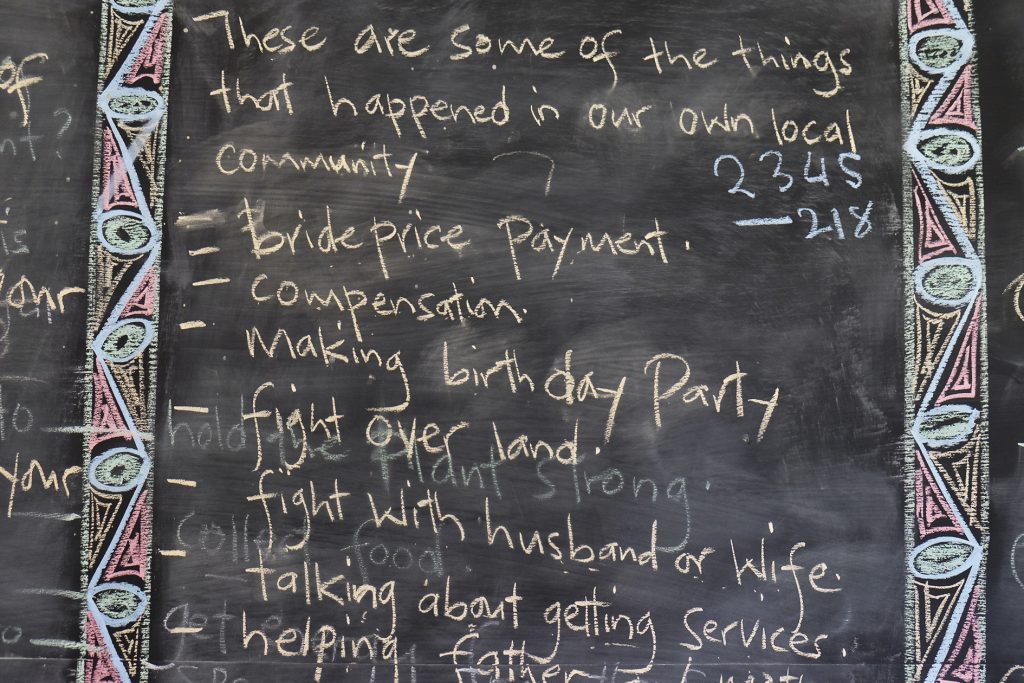
HELA PROVINCE, PNG: No one escapes the consequences of the conflict. Children live with the grim reality of the violence. On a blackboard in Hiri Elementary School, students wrote down what they observed in their community. Photo by Caitlin Welch, ICRC.
The ICRC has provided cash grants to women or orphan-headed households whose previous main breadwinners were killed in tribal fights, with one such beneficiary telling a colleague of mine how she was now no longer “invisible in her community” and part of the communal fabric once again. Such cash grants are complemented with training on keeping livestock and agricultural techniques as well as on financial literacy. ICRC experts also carry out training for health professionals on emergency room trauma care and emergency management of victims of sexual violence. Soon, they are also looking to provide mental health and psychosocial support to victims of violence.
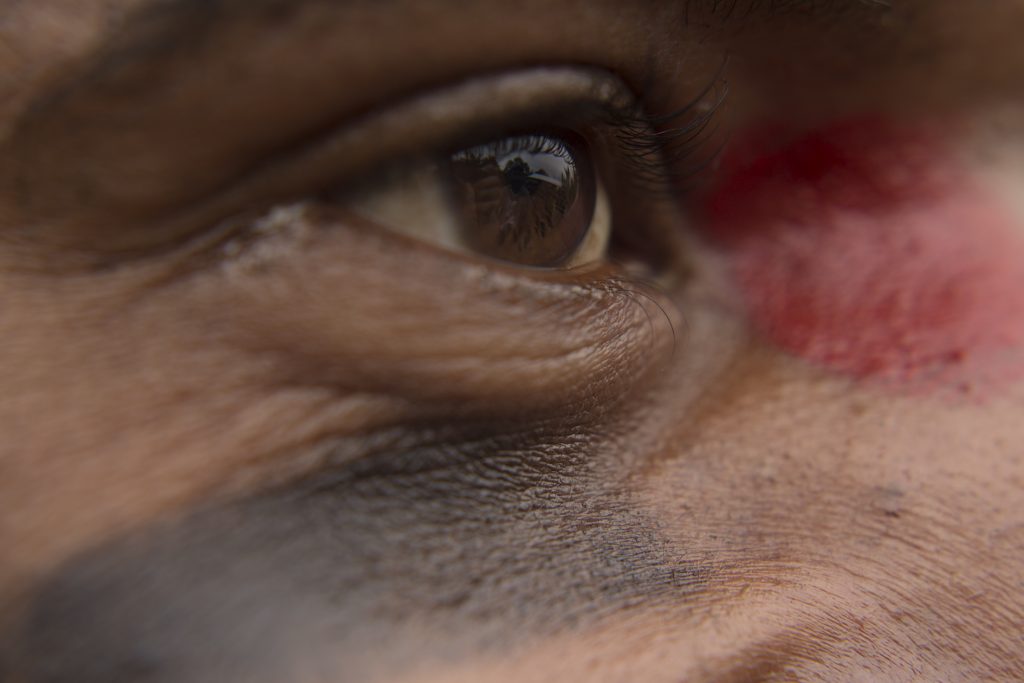
HELA PROVINCE, PNG: Tribal face painting plays a prominent role in Papua New Guinea culture, with each tribe having their own unique way of painting their faces and body. The tradition of face painting is also used before, during and after tribal fights to communicate the situation to those around. The black and red colours here symbolise that blood has been spilt and someone in the tribe has died. Photo by Caitlin Welch, ICRC.
As we have a unique relationship with weapon bearers, we also conduct training on international policing standards for the Royal PNG Constabulary and officers of PNG Defence Forces involved in law enforcement operations. Moreover, we conduct training on international humanitarian law for legal advisors and senior officers from the PNG Defence Forces. In Bougainville, in addition to the First Aid training, we support our partner the PNG Red Cross Society to deliver to some of the most remote and disadvantaged communities. We also organise an annual basic forensics workshop for policymakers and stakeholders directly involved in the exhumation and remains of those who tragically went missing during the Bougainville Crisis (1989-1998). This is to protect the dignity of the dead and ensure that international standards are not compromised.
Because those deprived of their freedom can be amongst the most vulnerable, the ICRC also visits correctional institutions and Police lock-ups across the nation. There, we engage in confidential dialogue with the authorities that aims to improve conditions of detention and the judicial guarantees of detainees on remand or who have been charged and sentenced.

HELA PROVINCE, PNG: International Committee of the Red Cross and Papua New Guinea Red Cross staff conduct first aid training in the community of Magarema. The unpredictability of tribal fighting can mean that access to and the operations of healthcare facilities are often disrupted. In cases like this, first aid officers can help save lives by providing emergency first aid, caring for people until they get to the closest medical facility. Photo by Caitlin Welch, ICRC.
Having worked with the ICRC in Sudan, Iraq, Afghanistan, and South Sudan before Papua New Guinea, I cannot claim that the violence in the country, both past and present, shocks or surprises me, and that is unfortunate in its own way. What complicates our work in PNG is that where it concerns tribal fighting groups, unlike an armed force of the state or non-state armed group, there is no established hierarchy to have a dialogue with who can issue orders to its soldiers. Bouts of tribal fighting to the outside observer are as unpredictable as the weather, some with roots going back many generations. Our teams spend countless hours listening, conversing with and persuading widows and community leaders, policemen and tribal fighters, provincial bureaucrats and church leaders to become partners in an age-old struggle to lessen the inevitable human suffering arising from conflict.
Ahmad Hallak is the Head of Mission of the International Committee of the Red Cross in Papua New Guinea.
Photos by Caitlin Welch, International Committee of the Red Cross.
This article is published under a Creative Commons Licence and may be republished with attribution.



